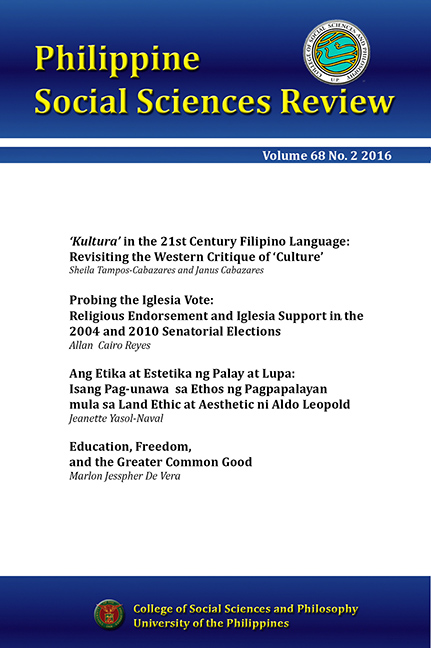Education, Freedom, and the Greater Common Good
Abstract
This paper discusses the tension between the socio-political ideals of freedom and the greater common good within the discursive sphere of education. In prescribing ways to resolve this tension I expound on Amartya Sen’s capability approach as theoretical framework. I first present an expository discussion of the tensions between the ideals of freedom and the greater common good within the broader socio-political context, as exemplified in the conflict between utilitarianism and liberalism. I then present a theoretical sketch of the idea of education as capability, which applies Sen’s capability approach as framework to resolve the conflict between the ideals of freedom and the greater common good in education. The philosophy of education as capability is geared towards the development and enhancement of individual and collective capabilities that give students reason to value their individual and collective lives. Freedom as universal and basic to human beings is one of the foundational principles underlying the notion of education as capability. It encompasses the idea that individual freedom, as well as the associated ideals of justice and fairness which enable individual freedoms, are essential constitutive elements of human capability and crucial in the development and enhancement of actual individual and collective lives. I conclude with an examination of the feasibility of actual educational practice based on Sen’s capability approach.
Published
2017-03-05
How to Cite
DE VERA, Marlon Jesspher B..
Education, Freedom, and the Greater Common Good.
Philippine Social Sciences Review, [S.l.], mar. 2017.
ISSN 2672-3158.
Available at: <https://journals.upd.edu.ph/index.php/pssr/article/view/5568>. Date accessed: 06 aug. 2025.
Section
Articles
Keywords
Amartya Sen, capability approach, common good, education, freedom


